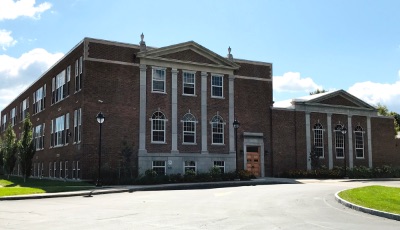8360 - Religious Expression in the Public Schools
| Policy: Religious Expression in the Public Schools | Policy Number: 8360 |
| Date of Original Policy: 07/10/2002 | Date Revision Adopted: 10/14/2020 |
| Reviewed by Policy Committee: 09/16/2020 | Date of Next Review: 07/28/2023 |
| Replacement of Policy Number: 8360 |
The Board of Education acknowledges the importance of religion to the understanding of society and the richness of the human experience. In approaching the teaching about religion in the school, the District will be guided by three concepts when making decisions about the appropriateness of activities for inclusion in the school program: the activity should have a secular purpose; the activity should neither advance nor inhibit religion; and the activity must not foster an excessive entanglement of “government” with religion.
Nurturing the development of knowledge and respect for the rights of all cultural and religious groups is a continuing goal of the School District. Students, faculty and administration are reminded of the pluralism of religious beliefs and are urged to be conscious of and respect the sensitivity of others.
Opportunities to learn about cultural and religious traditions should be provided within the framework of the curriculum. Information about religious and cultural holidays and traditions focusing on how and when they are celebrated, their origins and histories should be part of this instruction. This educational opportunity should be handled with great care, sensitivity and respect for the feelings and beliefs of individuals.
An environment should be created and encouraged where students of various ethnic backgrounds feel comfortable in sharing comments about their religious and cultural traditions. No student should be singled out to share or participate in such discussions solely on the basis of that student’s identification with the cultural or religious heritage being addressed. A student’s preference not to share or participate in such discussions should be honored and respected without penalty.
School Activities Related to Religious Holidays or Themes
In planning school activities related to the teaching about religious holidays or themes, special effort must be made to ensure that the activity is not devotional and that students of all faiths can join without feeling they are betraying their own beliefs.
In planning school activities related to the teaching about religious holidays or themes, age appropriate activities are encouraged within the framework of the curriculum. Teaching about religious and cultural holidays may include such special activities as parties and special foods, if they reinforce educational goals.
Symbols in the Schools
The purpose of using religious symbols should be to teach about religious concepts and traditions, and to convey historical or cultural content, not to promote or celebrate religious concepts, events or holidays.
Music in the Schools
The purpose of using religious music should be to teach musical concepts, to convey historical and cultural content, or to create aesthetic experiences in a setting, which emphasizes artistic expression and educational value, not to promote or to celebrate a religious faith.
District Calendar
The days on which members of a religious group may be absent to observe a religious holiday (legal absence) will be noted on the school planning calendar and the District calendar distributed to parents/guardians. Out of respect for a student’s observance of these holidays, teachers will be sensitive to the needs of the student by allowing them to make up all class work, homework, and tests without penalty. Parents/guardians are encouraged to notify the school prior to the absence in order to assist the staff in instructional planning and in meeting the needs of the student.
Curriculum Areas In Conflict With Religious Beliefs
Students shall be given the option to be excused from participating in those parts of an activity, program, or area of instruction involving a religious theme, which conflicts with their own religious beliefs or that of their parents or guardians in accordance with applicable law and regulations. Alternatives may be provided that are of comparable instructional value.
Implementation
Administrative regulations will be developed to implement the terms of this policy. Further, the District shall vigorously publicize and disseminate this policy and accompanying regulations in order to ensure community, faculty, student, and parental/guardian awareness.
United States Constitution, First Amendment
New York State Constitution, Article XI, Section 4
Equal Access Act, 20 United States Code (U.S.C.)
Sections 4071- 4074
Education Law Sections 1709(1) and (3), 3204(5) and 3210
8 New York Code of Rules and Regulations (NYCRR)
Sections 16.2 and 109.2




